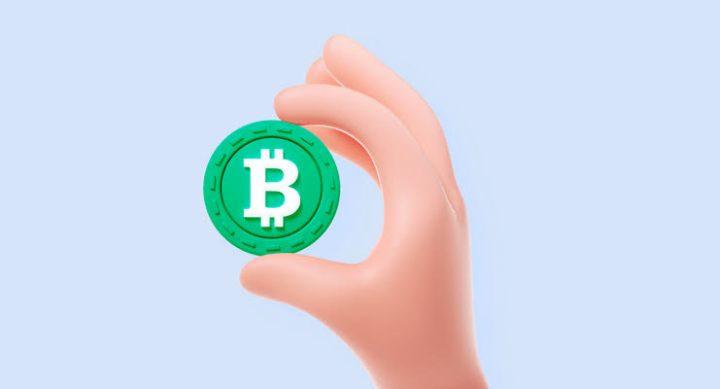Trading Guide for Bitcoin Cash (BCH) on Decentralized Exchanges for Beginners
Cryptocurrencies have revolutionized the way we manage money, offering new methods for investment and trading. Among these, Bitcoin Cash (BCH) stands out as a cryptocurrency created to address the speed and cost limitations of Bitcoin. This guide aims to help beginners understand the fundamentals of trading BCH on decentralized exchanges (DEXs), covering what BCH is and how to trade it effectively.
What is Bitcoin Cash (BCH)?
Origins and Purpose
- Fork from Bitcoin: Bitcoin Cash was launched on August 1, 2017, as a fork of Bitcoin to allow faster transactions.
- Larger Block Size: BCH increased Bitcoin’s block size from 1 MB to 8 MB, and later to 32 MB, enabling more transactions with lower fees.
Key Features
- Low Fees: Bitcoin Cash’s low transaction fees make it ideal for small payments.
- Speed: Faster transaction processing makes BCH suitable for everyday purchases.
- Decentralization: While prioritizing practical usability, BCH remains decentralized.
What are Decentralized Exchanges?
Decentralized exchanges enable peer-to-peer trading without a central authority, relying on smart contracts to execute transactions. Trading BCH on DEXs offers several benefits:
- Privacy: Minimal personal information is required.
- Security: Users retain control of their private keys, reducing hack risks.
- Control: You have unrestricted access to your funds.
- Interoperability: Many DEXs support multiple blockchains, including BCH.
Getting Started with Trading BCH on DEXs
1. Choose a Wallet
- Software Wallets: Beginner-friendly options include Bitcoin.com Wallet and Electron Cash.
- Hardware Wallets: For enhanced security, consider Ledger or Trezor for large holdings.
2. Acquire BCH
- Purchase BCH on a centralized exchange and transfer it to your DEX-compatible wallet. If you held Bitcoin before the BCH fork, you may already own BCH.
3. Select a DEX
- Not all DEXs support BCH. Popular options include Sideshift, Cauldron Swap, or Ethereum-based platforms for wrapped BCH (WBCH).
How to Trade BCH on a DEX
Step-by-Step Trading Guide Process:
- Connect Your Wallet: Use a browser extension or app to link your wallet to the DEX.
- Check Liquidity: Assess the liquidity for BCH trading pairs; low liquidity can cause price fluctuations.
- Understand Trading Pairs: BCH is often paired with other cryptocurrencies, which can affect your trading strategy.
- Place Trades:
- Market Orders: Buy or sell at the current market price.
- Limit Orders: Specify a price for buying or selling; these orders may take longer to execute but can save costs.
- Fees and Costs: BCH transactions are low-cost, but verify gas fees for cross-chain transactions.
- Confirm Transactions: Approve trades through your wallet, including network fees.
Best Practices for Trading BCH on DEXs
Security
- Use Cold Storage: Keep non-trading BCH in a hardware wallet.
- Two-Factor Authentication (2FA): Add an extra layer of security to your accounts.
Risk Management
- Start Small: Trade only what you can afford to lose.
- Diversify: Spread investments across different assets to minimize risk.
Educate Yourself
- Stay Updated: Follow BCH news and market trends.
- Join Communities: Participate in forums or social media groups for insights.
Technical Knowledge
- Learn the Interface: Familiarize yourself with the DEX’s trading platform.
- Monitor Slippage: Use limit orders to mitigate price differences in volatile markets.
Challenges and Solutions
Low Liquidity
- Trade on busier days or use aggregators like 1inch to find better prices.
High Gas Fees
- Use BCH-native DEXs to avoid the high costs associated with other blockchain networks.
Technical Complexity
- Start with user-friendly platforms and gradually transition to more advanced ones.
Advanced Trading Guide
For experienced traders:
- Liquidity Provision: Earn fees by adding BCH to liquidity pools, but beware of potential impermanent losses.
- Arbitrage: Exploit price differences across exchanges.
- Yield Farming: Stake or lend BCH on DeFi platforms for returns, understanding the associated risks.
The Role of Smart Contracts in BCH Trading on DEXs
Smart contracts are vital for decentralized trading, enabling trustless, automated transactions.
What are Smart Contracts?
- Self-Executing: Transactions are processed automatically when conditions are met.
- Trustless: No third-party involvement; the code enforces the rules.
Applications in BCH Trading
- Trading: Secure and efficient BCH swaps using smart contracts.
- Liquidity Pools: Facilitate token swaps while earning fees.
- Automated Market Makers: Ensure continuous liquidity through algorithm-driven pricing.
Advantages
- Security: Immutable rules reduce fraud risks.
- Speed: Faster transaction processing.
- Cost Efficiency: Lower fees compared to traditional systems.
Challenges
- Vulnerabilities: Bugs in smart contracts could lead to losses.
- Interoperability: BCH’s smart contract capabilities are less developed than Ethereum’s.
Cheap Remote Crypto Mining for you – Click Here
Conclusion
Trading Bitcoin Cash on decentralized exchanges offers a modern way to engage with cryptocurrencies, emphasizing privacy, control, and security. While challenges like technical complexity and low liquidity exist, education and strategic planning can help you navigate this space effectively. With time and effort, BCH trading on DEXs can be a rewarding endeavor in the ever-evolving world of decentralized finance.
Embark on your journey into BCH trading with confidence and curiosity, and enjoy the decentralized revolution!


